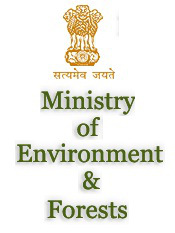The Government signed a loan agreement with Japan International Cooperation Agency (JICA) for pollution abatement of River Mula-Mutha in Pune under National River Conservation Plan (NRCP) in the presence of Minister of State (Independent Charge) of Environment, Forest and Climate Change, Shri Prakash Javadekar. The Government of Japan has committed to provide a soft loan of 19.064 billion Yen (about Rs. 1000 crore) to Government of India for the project at an interest rate of 0.30% per annum. Speaking soon after the agreement was signed, Shri Javadekar termed it a ‘historic agreement’. The Minister also said that it marked the beginning of a new chapter of cooperation with Japan.
The loan assistance for the project has been approved by the Union Finance Ministry at an estimated cost of Rs. 990.26 crore. The project cost will be shared between Government of India and Pune Municipal Corporation (PMC), the implementing agency for the project, in the ratio of 85:15 respectively. The share of Central Government in project will be Rs. 841.72 crore and share of PMC would be Rs. 148.54 crore. The loan has to be repaid by Government of India in a period of 40 years, including a 10-year grace period. The project is scheduled to be completed by January, 2022.
The major components proposed under the project include construction of 11 new Sewage Treatment Plants (STPs), which will result in a creation of an additional treatment capacity of 396 mld over the existing treatment capacity of 477 mld, laying of 113.6 kms of sewer lines and renovation/rehabilitation of 4 existing intermediate pumping stations. Once the project is completed, the total STP capacity available in Pune will be 873 mld, which will be sufficient to cater to sewage generation for the year 2027. The new STPs would be designed for effluent quality of BOD<10 mg/l, TSS<10 mg/l along with removal of fecal coliform and nutrients (nitrogen & phosphorus). The project also includes installation of Central SCADA system for centralized monitoring of functioning of STPs, construction of 24 units of community toilet facilities in slum and fringe areas, public participation and awareness programme, GIS mapping of sewerage facilities for better asset management. A Project Management Consultant will be appointed by the Ministry, as per JICA Guidelines, to assist in implementation and monitoring of the project.
The project will have a significant, direct beneficial impact in terms of reduction of pollution load in the river and improvement of the quality of its water. Some of the collateral benefits of the project include – use of tertiary treated effluent for irrigation and employment opportunities, particularly in the construction stage. The project will also improve the aesthetics and sanitation of Pune. Biogas (methane) from STPs will be used to generate electricity. To that extent, this will not only be a non-conventional energy source, but will also provide benefits in terms of reducing greenhouse gas emissions (methane being a greenhouse gas).
The Mula Mutha river at Pune is one of the 302 polluted river stretches of the country identified by Central Pollution Control Board. The major reasons for pollution of Mula Mutha are discharge of untreated domestic waste water into the river due to inadequate sewerage system (including pumping stations) & sewage treatment capacity in the town, as well as open defecation on the river banks.
Earlier, in his opening remarks, Secretary, Ministry of Environment, Forest and Climate Change, Shri Ashok Lavasa said that the signing of the agreement shows the growing cooperation between India and Japan. He also said that the project will provide river cleaning and sanitation facility to Pune.





